Choosing the Right Door Panel for Your Home: A Detailed Guide
When selecting the design of your home, doors play an important role both aesthetically and functionally. Doors not only provide privacy, security, and insulation but can also add style, charm, and character to a room. With so many types of doors available on the market, choosing the right ones for your home can be challenging. In this article, we provide a detailed guide to various door types, their materials and finishes, features, and accessories, as well as installation and maintenance tips. By reading this guide to the end, you will be able to choose the perfect door for your home.
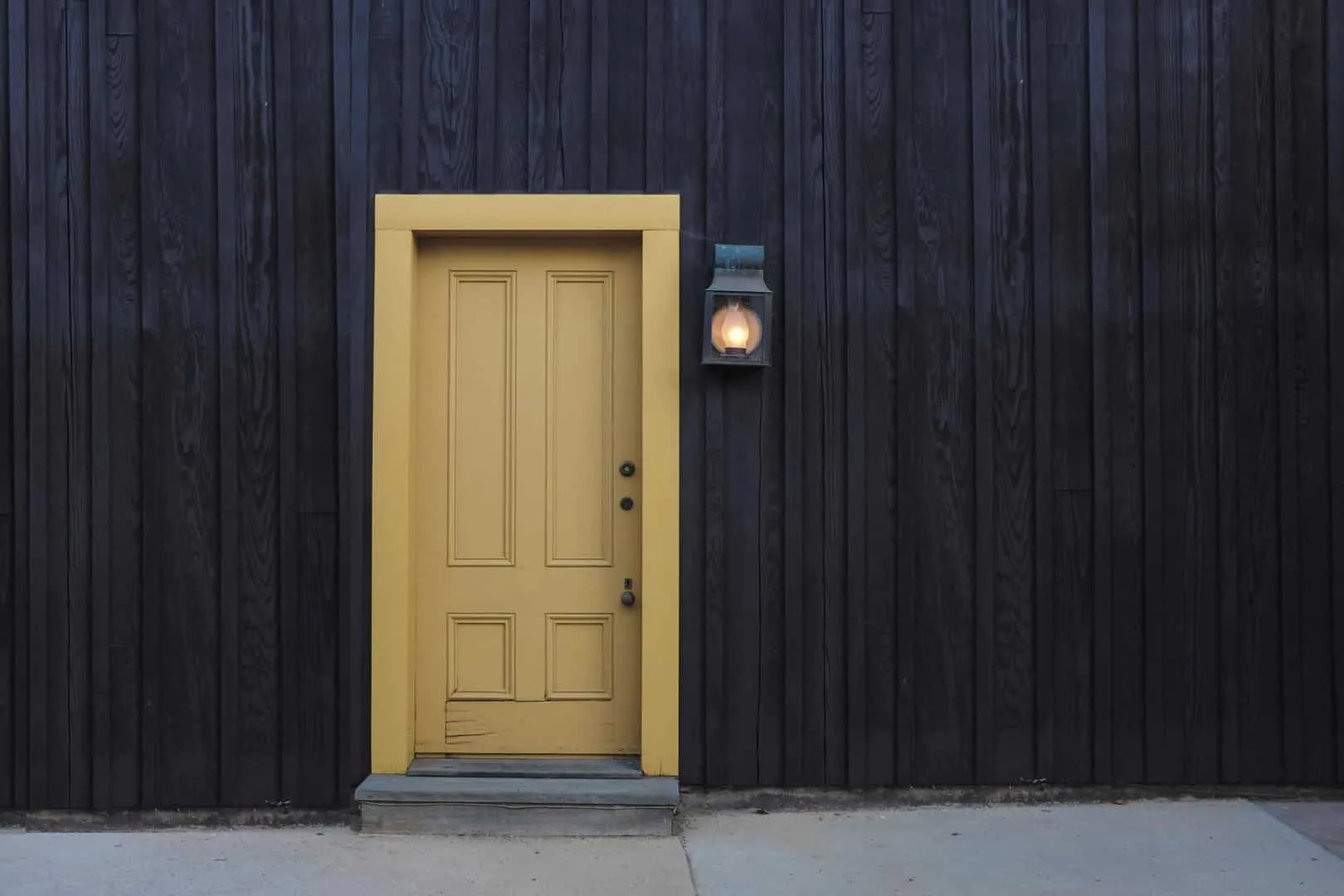
Types of Doors
The first thing to consider when choosing a door is the type that best suits your needs and preferences. Here are some of the most common types of doors along with their pros and cons:
Hinged Doors
These are classic doors that open and close on hinges and come in a wide range of styles, sizes, and materials. Hinged doors can be solid or hollow, have various design panels, glass inserts, or decorative elements. They are simple to install, operate and maintain, provide good insulation and security. However, hinged doors can take up valuable usable space when opened and may be less convenient in narrow or tight spaces.
Sliding Doors
These doors glide along tracks and are often used on patios, balconies or rooms with limited space. Sliding doors can be made from glass, wood, metal or vinyl and consist of one or multiple panels. They provide continuous views, easy access, and efficient space use. However, sliding doors can be prone to air leakage, noise, and track wear. Moreover, they may be more difficult to secure compared to hinged doors.
French Doors
These doors consist of two door panels connected in the center and opening outward. French doors are elegant, stylish, and versatile, usable for both interior and exterior spaces. They are often made from wood, metal or glass and can have various design panels, colors, and finishes. French doors provide good insulation, ventilation, and natural light, can enhance the aesthetic value of a room. However, French doors may be expensive, heavy and require regular maintenance and seals.
Folding Doors
Folding doors consist of several panels that fold inside or outside and are often used for storage rooms, laundries, or basements. Folding doors can be made from wood, metal or vinyl and have various design panels and finishes. They are cost-effective, easy to install and provide good ventilation and accessibility. However, folding doors may be less secure and durable compared to other door types and can jam or get stuck if not properly maintained.
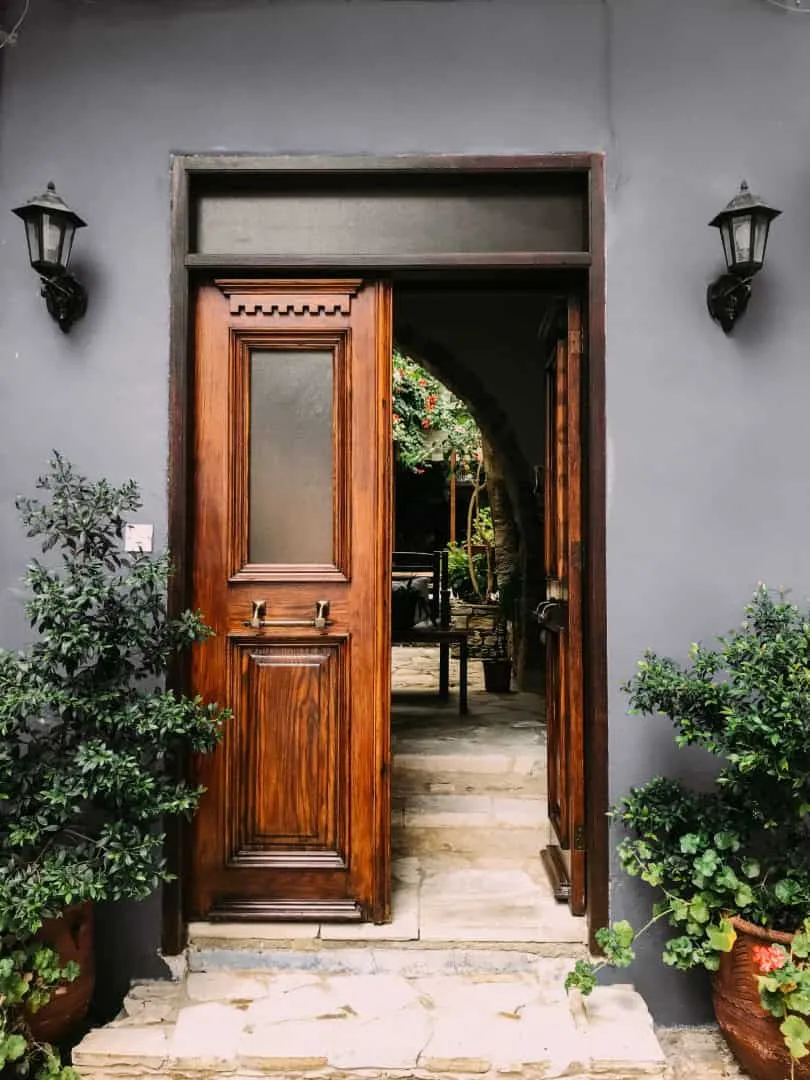
Materials and Finishes
After selecting the type of door that suits your needs, you should consider the materials and finishes best suited to your style and budget. Here are some of the most common materials used for doors:
Wood
This is a popular and timeless material for doors as it provides warmth, texture, and natural beauty. Wooden doors can be made from various wood species like oak, mahogany or pine and can be painted, varnished or left natural. Wooden doors provide good insulation, strength, and soundproofing, and can be adapted to any size or design. However, wooden doors may be expensive, heavy and require regular maintenance to prevent warping, cracking or rotting.
Metal
This is a strong and secure material for doors as it provides good protection against intrusions, fire and weather conditions. Metal doors can be made from steel, aluminum or iron and finished with various coatings such as powder coating, galvanization or anodizing. Metal doors offer good durability, resistance and low maintenance level. Additionally, they can provide good insulation if they have a polyurethane core or gasket strips. However, metal doors may be prone to dents, scratches and corrosion. They also conduct heat and cold, making them less energy efficient.
Glass
This is a modern and elegant material for doors as it provides transparency, lightness and visual impact. Glass doors can be made from tempered, laminated or insulating glass and have various tints, textures or patterns. Glass doors offer good natural lighting, aesthetic value and soundproofing. They can be adapted to any design or size. However, glass doors may be expensive, fragile and require special care to prevent breakage or cracking. They can also reduce privacy, security and energy efficiency if not coated with reflective coating or blinds.
Vinyl
This is a versatile and affordable material for doors as it provides resistance to moisture, rot and insects. Vinyl doors can be made from PVC or composite materials and can be molded into various shapes, sizes and colors. Vinyl doors offer good strength, low maintenance level and insulation. They are also resistant to dents, scratches and fading. However, vinyl doors may be less secure compared to other materials and can expand or contract under extreme temperatures causing deformation or gaps. They may also have a plastic look that might not suit all styles.
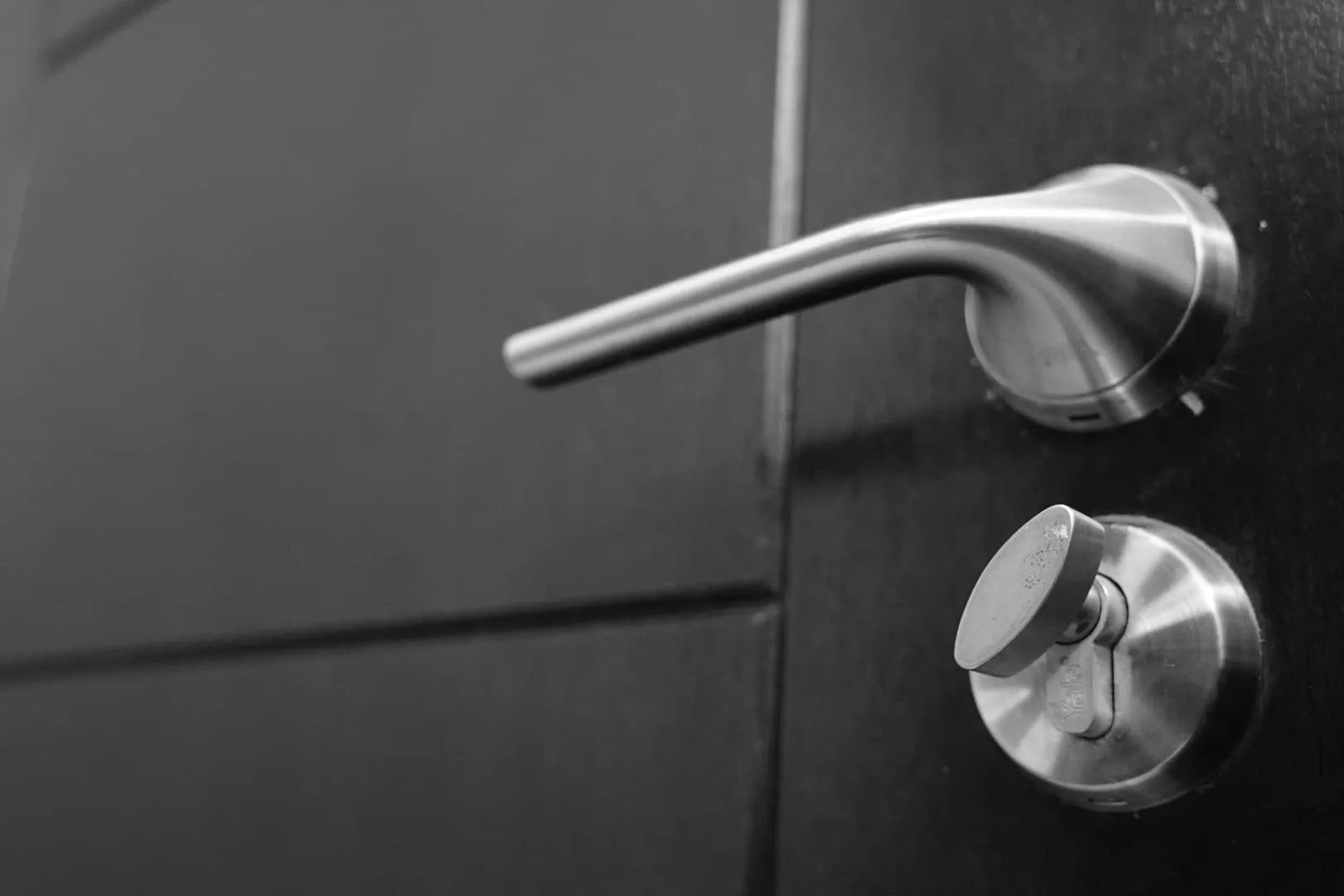
Features and Accessories
Besides the type and material of a door, various features and accessories can improve its functionality and appearance. Here are some of the most common features and accessories for doors:
Hardware Components
This includes handles, locks, hinges and other components that ensure smooth and reliable opening and closing of the door. Hardware can be made from various materials such as brass, nickel or stainless steel and have different finishes like polished, matte or bronze. Hardware can also come in various styles such as classic, modern or rustic and can be adapted to the design and color of the door.
Glass Inserts
These are decorative or functional glass panels that can be added to doors to enhance their beauty or functionality. Glass inserts can have various shapes, sizes and patterns and can be clear, frosted or textured. Glass inserts may also have different properties such as energy efficiency, soundproofing or privacy and can be a great way to add character and charm to the door.
Seals
These are gasket or rubber edging applied around door edges to prevent air leakage, drafts or water penetration. Seals can be made from various materials such as rubber, polyurethane foam or vinyl and can be installed on top, bottom or sides of the door. Seals can also be adapted to the size, shape and material of the door and improve insulation, energy efficiency and comfort.
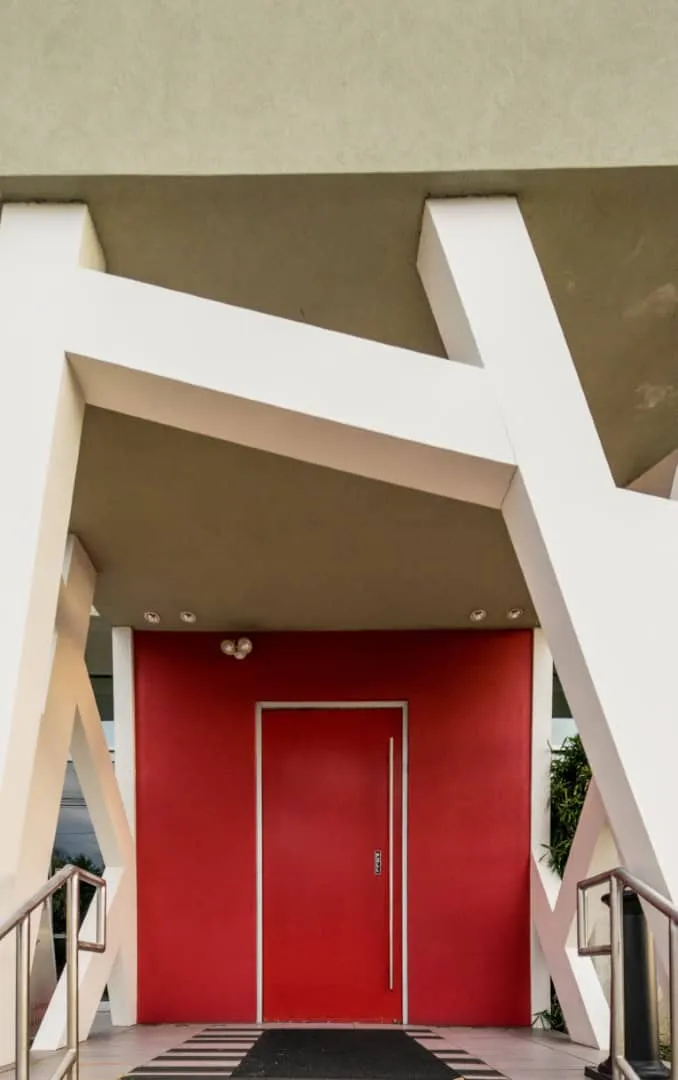
Installation and Maintenance
Finally, when choosing a door, it is important to consider installation and maintenance requirements. Here are some tips:
Installation
Ensure you have accurately measured the door opening and selected a door of appropriate size and style. Follow manufacturer's installation instructions or hire a professional installer if necessary. Ensure the door is properly aligned, vertical and securely mounted, and that hardware components are firmly installed. Test the operation of the door, locks and seals and make adjustments as needed.
Maintenance
Depending on the material and finish of the door, various types of maintenance may be required. Here are some general recommendations:
- Wooden doors should be regularly inspected for cracks, splits or warping and sanded and recoated when necessary to prevent damage from moisture or insects. Avoid exposing wooden doors directly to sunlight, rain or extreme temperatures as this can cause fading or distortion.
- Metal doors should be regularly cleaned with a soft cleaning solution and water, and inspected for rust or corrosion. Repair scratches and dents with paint or primer as needed, and lubricate hardware components and hinges to avoid friction or noise.
- Glass doors should be regularly cleaned with a specialized glass cleaner or vinegar solution, then wiped dry to avoid streaks or water spots. Avoid using abrasive or acidic cleaners as these can scratch or damage the glass surface. Inspect glass panels for cracks or chips and replace them when necessary to ensure safety and clarity.
- Vinyl doors should be regularly cleaned with a soft cleaning solution and water, and inspected for cracks or gaps. Avoid using abrasive or solvent-based cleaners as these can damage the vinyl surface. Check seals and replace them when necessary to maintain insulation and efficiency.
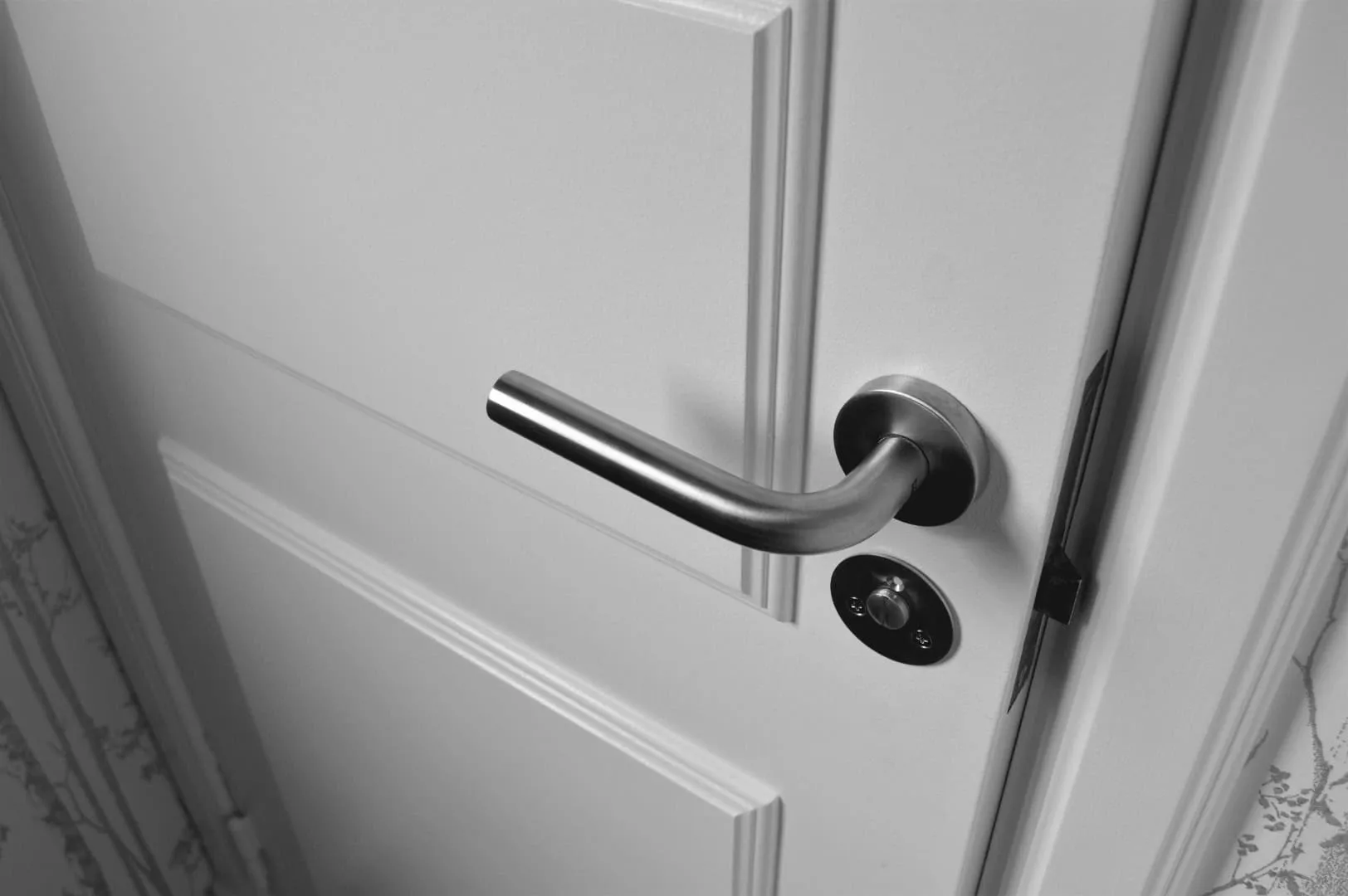
In conclusion, doors are an important element of any home as they provide privacy, security and aesthetics. When choosing a door, it is important to consider the type, material, features and maintenance requirements, as well as budget and style preferences. Whether you prefer a classic wooden door, modern metal door, elegant glass door or practical vinyl door, there are many options to match your needs and taste. With proper installation and maintenance, a door can serve for many years and enhance the appearance and functionality of your home.
Need a renovation specialist?
Find verified professionals for any repair or construction job. Post your request and get offers from local experts.
You may also like
More articles:
 House with Corridors by Ricardo Yslas Gámez Arquitectos in Mexico City
House with Corridors by Ricardo Yslas Gámez Arquitectos in Mexico City Modern L-Shaped Villa Casa Pendenza in Çeşme by BAD – Başak Akkoyunlu Design
Modern L-Shaped Villa Casa Pendenza in Çeşme by BAD – Başak Akkoyunlu Design Sierra Leon House by JJRR/ARQUITECTURA in Mexico City
Sierra Leon House by JJRR/ARQUITECTURA in Mexico City Casa Solis by BAD: An Elegant Summer Resort in Cesme
Casa Solis by BAD: An Elegant Summer Resort in Cesme Varatojo House by Atelier Data in Torres Vedras, Portugal
Varatojo House by Atelier Data in Torres Vedras, Portugal Casolare Scarani House by Studio Andrew Trotter in Karovino, Italy
Casolare Scarani House by Studio Andrew Trotter in Karovino, Italy Castigani House by Ebeca in Argentina
Castigani House by Ebeca in Argentina Black Castle by Klopf Architecture: A Harmonious Blend of Modern Design and Nature
Black Castle by Klopf Architecture: A Harmonious Blend of Modern Design and Nature